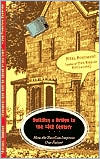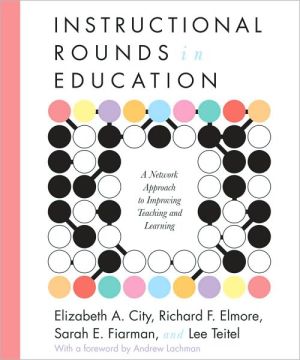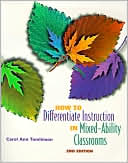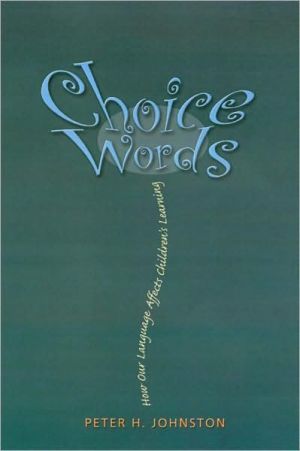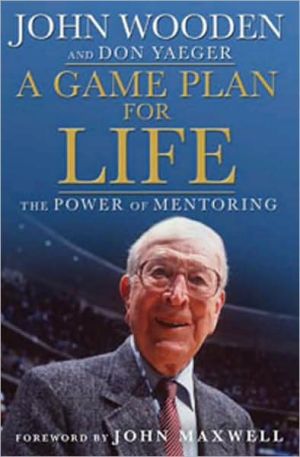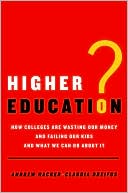Building a Bridge to the Eighteenth Century: How the Past Can Improve Our Future
In Building a Bridge to the 18th Century, acclaimed cultural critic Neil Postman offers a cure for the hysteria and hazy values of the postmodern world.\ Postman shows us how to reclaim that balance between mind and machine in a dazzling celebration of the accomplishments of the Enlightenment-from Jefferson's representative democracy to Locke's deductive reasoning to Rousseau's demand that the care and edification of children be considered an investment in our collective future. Here, too, is...
Search in google:
In Building a Bridge to the 18th Century, acclaimed cultural critic Neil Postman offers a cure for the hysteria and hazy values of the postmodern world.Postman shows us how to reclaim that balance between mind and machine in a dazzling celebration of the accomplishments of the Enlightenment-from Jefferson's representative democracy to Locke's deductive reasoning to Rousseau's demand that the care and edification of children be considered an investment in our collective future. Here, too, is the bold assertion that Truth is invulnerable to fashion or the passing of time. Provocative and brilliantly argued, Building a Bridge to the 18th Century illuminates a navigable path through the Information Age-a byway whose signposts, it turns out, were there all along. Publishers Weekly "I am not suggesting that we become the eighteenth century, only that we use it for what it is worth and for all it is worth," Postman (Amusing Ourselves to Death; Technopoly) argues in this penetrating, extended essay. Though other periods are rich with learning and wisdom, Postman believes the 18th-century Enlightenment is uniquely valuable and relevant to today's world. It gave us the rationalist notion of human progress--expressed and supported by science and technology--and the romantic critique, with its idea of inward progress and its suspicion of the machine. It gave us discursive narrative prose as the prototypical model of thought, along with more subtle, less hysterical critiques of language than postmodernists offer today. It gave us floods of new information, yet ridiculed information as an end in itself, urging a healthy respect for context and purpose. It gave us the idea of childhood as a distinct life stage linked to education and nurturance, illuminated by two contrasting visions--Locke's blank slate to be written on and Rousseau's plant to be cultivated. And it gave us representative democracy. All these were expressions of a world in which the dominant media, unlike today, was the printed word. As that environment fades, the complex tensions Postman illuminates are replaced by shallow sloganeering by those who present themselves as the embodiment of novelty and daring. Postman forcefully argues that we can use the complex legacy of the past to resist being swept into a shiny, simpleminded new dark age. (Oct.) Copyright 1999 Cahners Business Information.
A Bridge to the 18th Century\ The day before I began writing this book, I heard on the radio that somewhere between thirty-five percent and sixty-two percent of Americans believe that aliens have landed on Earth. Surveys vary about the exact percentages, as does the look of the aliens. Some are green, some gray. Some have ears, some do not. All have large heads. The report reminded me of a survey I saw some years ago about the number of people who believe in the Devil. Not the devil as metaphor and not a generalized concept of evil; the Devil, one might say, as a creature of flesh and blood, someone who walks the earth, looks like us, and is inclined to offer sly temptations and unholy propositions. Believers have in mind, I think, something on the order of Stephen Vincent Benét's creation in The Devil and Daniel Webster. I can't remember the percentages the survey uncovered, but they were high. I can't remember because I have repressed the figure or, as the psychologists now say, gone into denial. Conventional wisdom tells us that going into denial is not healthful, even though it is obvious that doing so has many advantages. Ernest Becker explains some of them in his famous book The Denial of Death. But one does not have to go as deeply as Becker to make good use of denial. If you are an American writer who fancies himself an heir of the Enlightenment, it is hard to write three pages unless you emphatically deny that many of your potential readers believe in deal-making devils.\ Denial is also helpful when one begins to contemplate the mental condition of some important members of our intellectual elite. I refer to those who have fallen under the devilish spell of what is vaguely called "postmodernism," and in particular a subdivision of it sometimes called "deconstructionism." Academic responsibility requires me to give some detail about this world-view, and I will do so in a later chapter. Here, I need only remark that in this way of understanding things, language is under deep suspicion and is even thought to be delusional. Jean Baudrillard, a Frenchman, of all things, tells us that not only does language falsely represent reality, but there is no reality to represent. (Perhaps this explains, at long last, the indifferent French resistance to the German invasion of their country in World War II: They didn't believe it was real.) In an earlier time, the idea that language is incapable of mapping reality would have been considered nonsense, if not a form of mental illness. In fact, it is a form of mental illness. Nonetheless, in our own time the idea has become an organizing principle of prestigious academic departments. You can get a Ph.D. in this sort of thing.\ There is, of course, a connection between alien- and devil-believers and a certain variety of deconstructionists. They are people in the thrall of a serious depression, and, in truth, it is unseemly to make fun of them, especially since most of us are suffering in varying degrees from the same malady. If I knew more about psychology, I might be able to give the sickness a name. Instead, I turn to poets -- not for a name but for a confirmation and a cause. Yeats, for example, gives us a precise description of our wayward academics and our overcommitted alienites: The former lack all conviction, while the latter are full of passionate intensity. T. S. Eliot, you will remember, wrote of the hollow men occupying a wasteland. Auden wrote of the age of anxiety. Vachel Lindsay wrote of leaden-eyed people who have no gods to serve. Edna St. Vincent Millay, in her book Huntsman, What Quarry?, wrote a poem which goes to the root of the problem. Here is an excerpt:\ Upon this gifted age, in its dark hour,\ Rains from the sky a meteoric shower Of facts . . . they lie unquestioned, uncombined.\ Wisdom enough to leech us of our ill Is daily spun; but there exists no loom To weave it into fabric.\ No loom to weave facts into fabric, people with no gods to serve, hollow and anxious, distrusting language, uncertain about even the most obvious features of reality, lacking conviction, suspicious of truth.\ What are we to make of this? There are many possibilities. Among them are the strange and fanciful dreams that seem always to accompany the onset of a new millennium. Some believe a new age signals the Second Coming of Christ, some believe it signals the end of everything, and in between the varieties of delusion are legion. The possibility that strikes me as most plausible is more mundane. And it has happened before, with or without the coming of a new millennium. I refer to the confusion that accompanies the absence of a narrative to give organization and meaning to our world -- a story of transcendence and mythic power. Nothing can be clearer than that we require a story to explain to ourselves why we are here and what our future is to be, and many other things, including where authority resides. I am not writing this book to document the loss of narrative. I have done that already, as have others in books better than mine. Besides, I have no intention of writing still another depressing book about the breakdown of the human spirit. But it may be said here that when people do not have a satisfactory narrative to generate a sense of purpose and continuity, a kind of psychic disorientation takes hold, followed by a frantic search for something to believe in or, probably worse, a resigned conclusion that there is nothing to find. The devil-believers reclaim a fragment of the great narrative of Genesis. The alien-believers ask for deliverance from green-gray creatures whose physics has overcome the speed of light. The deconstructionists keep confusion at bay by writing books in which they tell us that there is nothing to write books about. There is even one group who seeks meaning in the ingenuity of technological innovation. I refer to those who, looking ahead, see a field of wonders encapsulated in the phrase "the information superhighway." They are information junkies, have no interest in narratives of the past, give little thought to the question of purpose. To the poet who asks, "Where is the loom to weave it all into fabric?," they reply that none is needed. To the poet who asks, "What gods do you serve?," they reply, "Those which make information accessible in great volume, at instantaneous speed, and in diverse forms." Such people have no hesitation in speaking of building a bridge to the new century. But to the question "What will we carry across the bridge?" they answer, "What else but high-definition TV, virtual reality, e-mail, the Internet, cellular phones, and all the rest that digital technology has produced?"\ These, then, are the hollow men Eliot spoke of. They are, in a sense, no different from the alien- and devil-believers in that they have found a story that will keep them going for a while, but not for long. And, in a way, they are no different from those academics who find temporary amusement and professional advancement in having no story at all. I am not writing my book for these people. I write for those who are still searching for a way to confront the future, a way that faces reality as it is, that is connected to a humane tradition, that provides sane authority and meaningful purpose. I include myself among such people.\ Where shall we look for such a way? Well, of course, one turns first to the wisdom of the sages, both near and far. Marcus Aurelius said, "At every action, no matter by whom preferred, make it a practice to ask yourself, 'What is his object in doing this?' But begin with yourself; put this question to yourself first of all." Goethe told us, "One should, each day, try to hear a little song, read a good poem, see a fine picture, and, if possible, speak a few reasonable words." Socrates said, "The unexamined life is not worth living." Rabbi Hillel said, "What is hateful to thee, do not do to another." The prophet Micah: "What does the Lord require of thee but to do justly, to love mercy and to walk humbly with Thy God." And our own Henry David Thoreau said, "All our inventions are but improved means to an unimproved end."I could go on nearly endlessly with these quotations, since the wisdom of the ages and the sages is not bound by time and space. We may add to the list Confucius, Isaiah, Jesus, Muhammad, the Buddha, Shakespeare, Spinoza, and many more. What they tell us is all the same: There is no escaping from ourselves. The human dilemma is as it always has been, and it is a delusion to believe that the future will render irrelevant what we know and have long known about ourselves but find it convenient to forget.\ How useful is it to be reminded? The words of the sages can calm and comfort us. They offer perspective and a release from the frenzy of speed and ambition. Very useful, I would say. But, of course, they are very far away from us in time and cultural conditions, and their advice is so abstract that it is difficult to see how we can turn much of it into practical and coherent instruction. In some parts of the Islamic world the commandments of Muhammad are, in fact, taken as imperatives of everyday life. And there are Christians and Jews who follow the Law down to the last detail. But for many of us, unsettled by the realities of vast change, especially technological change, fundamentalism of any kind rings hollow. We have problems and questions that Muhammad, Jesus, Hillel, Socrates, and Micah did not and could not speak of.\ Let us take a small but clear example. Not long ago (as these things are measured) scientists in Scotland successfully cloned a sheep. Another group of scientists in America cloned a monkey and a cow. And apparently, an American high school student, in order to gain some extra credit, has claimed to have cloned a frog. We can expect, if not this year or the next, that the cloning of human beings will become a reality. I think we can say that we have here a genuine twenty-first-century problem. It would be interesting -- wouldn't it? -- to speculate on what Jesus or the Buddha would say about this development in human reproduction. But we will have to address the matter without them. How will we do that? Where will we go for guidance? What use shall we make of this technology? Who has an answer we will find acceptable?\ Here is an answer I imagine all but a deconstructionist will find clearly unacceptable: Cloning humans opens up a whole new field of "human spare parts." The way it would work is that every time someone is born, a clone of this person would be made. The clone would be kept in a special, confined, and well-guarded place so that it can provide spare parts for the original person as needed throughout life. If the original person loses a kidney or lung at some time in his or her life, we would simply take it from the clone. Is there a problem with this? Well, of course, you will protest that the clone is, after all, a real human being. But that would only be the case if we define the clone as a human being. There is nothing new in human beings' defining other human beings as non-human things. In all cases of genocide, that is exactly the procedure. Joseph Goebbels explained how to do such things. In our own times, Marvin Minsky and others working in the field of artificial intelligence have prophesied enthusiastically that humans will become merely pets of their computers, so that the definition of the worth and capacity of humans will change. We have never had clones before. Who is to say we cannot use them in the way I have suggested?\ I hope you are thinking that my proposal is simply a bad joke and that any such proposal, seriously made, is a product of a depraved mind. I agree with you. But here is a question: Where did you get the idea that this proposal would be the product of a depraved mind? I imagine you believe that infanticide is also a depraved idea, in spite of the fact that it has been practiced for many more years in human history than it has been forbidden. Where did you get the idea that infanticide is horrible? Or that slavery is a bad idea? Or that the divine right of kings is a bad idea?\ What I am driving at is that in order to have an agreeable encounter with the twenty-first century, we will have to take into it some good ideas. And in order to do that, we need to look back to take stock of the good ideas available to us. I am suspicious of people who want us to be forward-looking. I literally do not know what they mean when they say, "We must look ahead to see where we are going." What is it that they wish us to look at? There is nothing yet to see in the future. If looking ahead means anything, it must mean finding in our past useful and humane ideas with which to fill the future.\ I do not mean -- mind you -- technological ideas, like going to the moon, airplanes, and antibiotics. We have no shortage of those ideas. I am referring to ideas of which we can say they have advanced our understanding of ourselves, enlarged our definitions of humanness. Shall we look for some in the century that is ending? What is there to find -- the principle of indeterminacy? Nietzsche's arguments for the death of God? Freud's insistence that reason is merely a servant of the genitalia? The idea that language is utterly incapable of providing accurate maps of reality? You may think that I am loading the case against the twentieth century. Surely, you will call to mind (let us say, in America) the rejection of the segregation of races, the rejection of the inferiority of women, the increased access to higher education, and a few other advances. But these were not truly twentieth-century ideas, but rather extensions of ideas that arose at an earlier time. If you put your mind to it, I suppose you can recall several ideas that originated in our own century, and that will be useful in the next. But if you think too long, you are on a road to despair. Is it not obvious that our century has been an almost unrelieved horror? Who would have thought, in 1900 -- the year, by the way, of Nietzsche's death and the publication of Freud's The Interpretation of Dreams -- that the twentieth century would feature continuous mass murder, far exceeding anything humanity had witnessed in the previous two millennia? Who would have thought that the three great transcendent narratives of this century would be fascism, nazism, and communism? Who would have thought weapons would be invented that, in a flash, could end all human life? Who would have thought that the theme of this century would be "Technology Über Alles"? I am sorry to say it, but I don't think we will get much help from our own century. As you can tell, I speak as an enemy of this century. But even if you are not, you must admit it is hard to be its friend.\ If we are looking for good ideas that may be revived, enhanced, appropriately modified, we could do worse than cast our eye on the fifth century b.c. -- the time of the great Athenians. I know that they are the classic example of Dead White Males, but we probably should pay them some attention anyway. These are the people who invented the idea of political democracy. They invented what we call Western philosophy and what we call logic and rhetoric. They came very close to inventing what we call science, and one of them -- Epicurus, by name -- conceived of the atomic theory of matter 2,300 years before it occurred to any modern scientist. They wrote and performed plays that, almost three millennia later, still have the power to make audiences laugh and weep. They even invented what today we call the Olympics, and among their values none stood higher than that in all things one should strive for excellence.\ But for all of this, their most luminous intellect, Plato, was the world's first systematic fascist. The Greeks saw nothing wrong in having slaves or in killing infants (although Aristotle opposed the latter). Their conception of democracy relegated women to silence and anonymity. And they despised foreigners. Their word for those who could not speak Greek was "barbarian." They were also technological innocents, a serious limitation if technological people wish to learn from them. The Athenians produced no important technical inventions, and they could not even devise ways of using horsepower efficiently.\ In sum, while it is not possible to ignore completely the contribution Athens made to our journey toward humanity, the Athenians are too far from us and too strange and too insular and too unacquainted with the power of technology for us to use their ideas as a social or intellectual paradigm. In the third century, Tertullian, one of the Church Fathers, asked a famous question: "What has Athens to do with Jerusalem?" It was rhetorical; he meant Athens had nothing to do with Jerusalem. In the twenty-first century, we may vary the question and modify the answer: What has Athens to do with New York (or London or Paris)? The answer: Much less than we would wish. The same may be said for the Middle Ages -- in my opinion a much-maligned era. We ought to remember that John Maynard Hutchins used the medieval period and its ideas as a guide for education when he reformed the University of Chicago in the nineteen-thirties and -forties. He did so because he found a very high degree of integration in the world-view of the Middle Ages. Medieval theologians developed an elaborate and systematic description of our relationship to God, to nature, to each other, and to our tools. Their theology took as a first and last principle that all knowledge and goodness come from God and that, therefore, all human enterprise must be directed toward the service of God. Theology, not technology, provided people with authorization for what to do and think. That is why Leonardo kept his design of a submarine secret, believing, as he did, that it would not gain favor in God's eyes. It is why Pope Innocent II prohibited the use of the crossbow, claiming it was "hateful to God" and could not be used against Christians. Of course, he saw no problem in using it against infidels. But the point is that in the theocratic world-view, technology was not autonomous but was subject to the jurisdiction of a binding religious system. Can you imagine anyone saying today that cloning humans should be prohibited because it would not find favor in God's eyes? Well, of course, some people do say that, but we are inclined to discredit them as naive fundamentalists or fanatics. Which is why I think the medieval way can offer us only minimal guidance. In a theocratic world, everyone is a fundamentalist. In a technological world, and in a multicultural world, fundamentalism is a side issue, confined to those places that are still theocratic and are therefore regarded as a danger to world harmony.This question--Where shall we look for guidance about what to do and think in the twenty-first century, especially guidance about our relationship to technology? -- is as significant as it is daunting, especially hard for those who are strangers to history. "Every culture," Lewis Mumford once wrote, "lives within its dream." But we often lose our dream, as I believe happened to us in the twentieth century. And we are in danger if we cannot reclaim one that will help us go forward. What else is history for if not to remind us about our better dreams?\ With this in mind, I suggest that we turn our attention to the eighteenth century. It is there, I think, that we may find ideas that offer a humane direction to the future, ideas that we can carry with confidence and dignity across the bridge to the twenty-first century. They are not strange ideas. They are still close to us. They are not all that difficult to remember. I suggest we try to reclaim some of them, with this provision: I am not suggesting that we become the eighteenth century, only that we use it for what it is worth and for all it is worth. In the preface to one of the many editions of Democracy in America, Tocqueville urged his fellow countrymen and -women to pay attention to America the way I would urge we pay attention to the eighteenth century. If I may adapt his thought and almost all of his words, I would put it this way: Let us not turn to the eighteenth century in order to copy the institutions she fashioned for herself but in order that we may better understand what suits us. Let us look there for instruction rather than models. Let us adopt the principles rather than the details.\ Who and what will we find there? The eighteenth century is the century of Goethe, Voltaire, Rousseau, Diderot, Kant, Hume, Gibbon, Pestalozzi, and Adam Smith. It is the century of Thomas Paine, Jefferson, Adams, and Franklin. In the eighteenth century we developed our ideas about inductive science, about religious and political freedom, about popular education, about rational commerce, and about the nation-state. In the eighteenth century, we also invented the idea of progress, and, you may be surprised to know, our modern idea of happiness. It was in the eighteenth century that reason began its triumph over superstition. And, inspired by Newton, who was elected president of the Royal Society at the beginning of the century, writers, musicians, and artists conceived of the universe as orderly, rational, and comprehensible. Beethoven composed his First Symphony in the eighteenth century, and we should not be surprised that Bach, Handel, Mozart, and Haydn composed their music in the eighteenth century. Or that Schiller, Swift, Defoe, Fielding, Samuel Johnson, Voltaire, and William Blake were among its major writers. Or that Gainsborough, Hogarth, David, and Reynolds were its best-known painters.\ We are talking about the time referred to as our period of Enlightenment. In truth, it may be said to begin toward the middle of the seventeenth century with the ideas of John Locke and Newton, and extend into the nineteenth if we wish to include -- as I think we ought to -- the ideas of John Stuart Mill and Alexis de Tocqueville and the great Romantic poets. And so the eighteenth century is a kind of metaphor referring to the time, as Kant put it, when we achieved our release from our self-imposed tutelage. It is the time of which historians have said that the battle for free thought was begun and won. By the end of that time, the modern world had been created. This is the century which Isaiah Berlin summed up in these words: "The intellectual power, honesty, lucidity, courage and disinterested love of the truth of the most gifted thinkers of the eighteenth century remain to this day without parallel. Their age is one of the best and most hopeful episodes in the life of mankind."\ If this is so, we can hardly afford to neglect it, which is why I recommend it to your notice, your study, and your advocacy. In chapters that follow, I will try to show how some of the ideas of the eighteenth century may be useful to us. But I must say, here, especially because the thought has probably occurred to you, that I am well aware that there existed inhumane beliefs and institutions in that century. The burning of witches was still taking place. France burned its last witch in 1746, Germany in 1775, and Poland in 1793. In Italy, the tortures of the Inquisition continued until the end of the century. Slavery still existed, at least in America. The oppression of women was standard practice, as was child labor. And, of course, most nations were still ruled by despots. But it was in the eighteenth century that the arguments were generated that made these inhumanities both visible and, in the end, insupportable. Yes, Jefferson had slaves. But he knew that he shouldn't have slaves. He proposed, unsuccessfully, a denunciation of the African slave trade in the Declaration of Independence, urged that it be prohibited in Virginia, and was well aware that one of his predecessors as President had freed his slaves, and that the other would have found it unthinkable to have slaves. Yes, Frederick the Great ruled Prussia with an iron hand. But he employed the greatest enemy of despotism, Voltaire, as his court philosopher. If you can imagine it, this would be analogous to Lenin's employing John D. Rockefeller to teach him economic theory. Yes, children as young as seven or eight worked from sunup to sundown in factories and mines. But the idea that child labor is inhumane came from the eighteenth century, in particular from Rousseau, who gave us the idea that children must have a childhood. And yes, Thomas Paine's The Age of Reason, which was an uncompromising attack on the Bible and churches of all kinds, led to his being vilified and denied his rightful place among America's Founding Fathers. But the First Amendment to the American Constitution nonetheless forbade any interference with people's religious beliefs.\ You can take any century you please and make a list of its inhumanities. The eighteenth is no exception. But it is there, and in no other, that we have the beginnings of much that is worthwhile about the modern world.
Prelude3Introduction5Ch. 1A Bridge to the 18th Century7Ch. 2Progress21Ch. 3Technology36Ch. 4Language58Ch. 5Information82Ch. 6Narratives99Ch. 7Children116Ch. 8Democracy136Ch. 9Education155App. ILetter from Lord Byron to Lord Holland, February 25, 1812175App. IIComments on the Nature of Language by People Who Never Heard of Jacques Derrida177App. IIIOn the Origin of Childhood and Why It Is Disappearing185Notes195Bibliography199Acknowledgments205Index207
\ From Barnes & NobleBack for the Future \ Neil Postman calls himself an "enemy" of the 20th century. He has never been a fan of television or video games, as he reveals in his book Amusing Ourselves to Death. Though he does not perceive himself as a neo-Luddite, he is apprehensive about the direction in which technology is leading us, as he explains in Technopoly. And he is aghast at the present state of our educational system and the dissipation of "childhood," as he relates in The End of Education and The Disappearance of Childhood.\ But Postman is far from a curmudgeon without a cause, or a solution. In his most controversial book to date, Building a Bridge to the Eighteenth Century: How the Past Can Improve Our Future, Postman revisits the subjects of his earlier works to suggest ways to ensure a better pathway over the bridge to the 21st century for those who "are still searching for a way to confront the future, a way that faces reality as it is, that is connected to a humane tradition, that provides sane authority and meaningful purpose."\ Postman finds useful instruction in the Age of Enlightenment, a period that he defines as beginning in the middle of the 17th century, with John Locke and Isaac Newton, and extending to the 19th century, with John Stuart Mill, Alexis de Tocqueville, and the romantic poets. It was the age that saw the invention of the idea of progress and our modern conception of happiness. Reason was beginning to triumph over superstition, and both the philosophers and philosophes (those interested "in practical, concrete matters as scientists, educators, humanitarians, and reformers") developed the ways we think about inductive science, religious and political freedom, popular education, rational commerce, and the nation-state. It was the age of Goethe, Voltaire, Rousseau, Diderot, Kant, Hume, Pestalozzi, Adam Smith, Thomas Paine, Jefferson, Adams, and Franklin -- some of the greatest minds of the last 300 years.\ While it has been argued that the 20th century gave us the rejection of racial and gender hierarchies, as well as a time of increased access to higher education, Postman explains that these were born out of the Age of Enlightenment. He does not deny that witches were burned at the stake as late as 1793 (in Poland), slavery was still in existence, and the Inquisition continued until the end of the 18th century. He instead draws our attention to the fact that Jefferson (a slave owner) denounced the African slave trade in the Declaration of Independence, and Frederick the Great employed the anti-despot Voltaire as his court philosopher. "You can take any century you please and make a list of its inhumanities. The eighteenth is no exception. But it is there, and in no other, that we have the beginnings of much that is worthwhile about the modern world."\ There are three "transcendent narratives" of this century, according to the author: fascism, Nazism, and communism, and they gave way to more destruction than human history has ever witnessed. Postman naturally prefers the narrative of the Enlightenment; it is one of skepticism, a virtue in Postman's eyes, and our century surely could use that mode of critical thinking. Postman faults our current age (as yet unnamed) for our inability to ask the crucial questions we need to understand how to move forward. We don't ask of technology, for example, "What is the problem to which this technology is the solution?", "Whose problem is it?", and "Which people and what institutions might be most seriously harmed by a technological solution?" Postman's solution for our future is to uphold the Enlightenment's legacy of skepticism, beginning with rethinking the ways we educate our children. He suggests that children be taught the art and science of asking questions, the concepts of semantics and scientific thinking, the history and principles of technological change, and comparative religion.\ While the "twenty-first century" is "only a name," Postman concedes that "it is a name we use to foster hope, to inspire renewal, to get another chance to do it right...if we try to remember how others before us tried to get it right, our own chances are improved."\ —Kera Bolonik\ \ \ \ \ \ Publishers Weekly - Publisher's Weekly\ "I am not suggesting that we become the eighteenth century, only that we use it for what it is worth and for all it is worth," Postman (Amusing Ourselves to Death; Technopoly) argues in this penetrating, extended essay. Though other periods are rich with learning and wisdom, Postman believes the 18th-century Enlightenment is uniquely valuable and relevant to today's world. It gave us the rationalist notion of human progress--expressed and supported by science and technology--and the romantic critique, with its idea of inward progress and its suspicion of the machine. It gave us discursive narrative prose as the prototypical model of thought, along with more subtle, less hysterical critiques of language than postmodernists offer today. It gave us floods of new information, yet ridiculed information as an end in itself, urging a healthy respect for context and purpose. It gave us the idea of childhood as a distinct life stage linked to education and nurturance, illuminated by two contrasting visions--Locke's blank slate to be written on and Rousseau's plant to be cultivated. And it gave us representative democracy. All these were expressions of a world in which the dominant media, unlike today, was the printed word. As that environment fades, the complex tensions Postman illuminates are replaced by shallow sloganeering by those who present themselves as the embodiment of novelty and daring. Postman forcefully argues that we can use the complex legacy of the past to resist being swept into a shiny, simpleminded new dark age. (Oct.) Copyright 1999 Cahners Business Information.\ \ \ Library JournalIn this wide-ranging call to action, Postman, author of such impassioned books as The Disappearance of Childhood and Amusing Ourselves to Death, offers us the chance to ground our discussions of the 21st century in the historical and philosophical bedrock of the 18th. Postman is certainly no victim of technolust--he has no e-mail, no PC, and writes his manuscripts in longhand. Those Luddite tendencies notwithstanding, Postman says he is not against technology but wants it viewed as merely a tool. He cautions that, in the words of Thoreau, "our inventions are but improved means to an unimproved end.'" The philosophers and scientists whose works and thoughts he invokes include Goethe, Voltaire, Rousseau, Kant, Smith, Paine, Franklin, and Jefferson. These worthies focused much attention on the technological developments of their times and all the resulting philosophical, social, political, and spiritual ripples. None of these thinkers "could possibly have embraced... the idea that technological innovation is synonymous with moral social and psychic progress." Yet today, too many e-mail postings and boardroom discussions--corporate, school, and library alike--begin with that certainty. Postman asks and tries to answer the core questions: "What is progress? How does it happen? How is it corrupted? What is the relationship between technological and moral progress?" And at center: "What is the problem to which technology is the solution?" Copyright 1999 Cahners Business Information.\ \ \ \ \ BooknewsPutting a twist on a recent presidential campaign slogan, Postman (culture and communications, New York U.) offers the Enlightenment as a model for creating a humane future. Goethe, Voltaire, Rousseau, Kant, Adam Smith, Thomas Paine, Jefferson, and Franklin are some of the luminaries he recommends for ideas on inductive science, religious and political freedom, popular education, rational commerce, the nation state, progress, and happiness. Annotation c. Book News, Inc., Portland, OR (booknews.com)\ \ \ \ \ David ShiPostman's brisk critique of contemporary trends and his urgent appeal for a common-sense skepticism make for compelling reading. His prose is witty and combative, lucid and self-revealing. \ The Christian Science Monitor\ \ \ \ \ Kirkus ReviewsAn intriguing cross-century dialogue. Neo-Luddite Postman (The End of Education, 1995, etc.) looks to the Age of Reason for an antidote to the hazy values of postmodernism. At the core of this intellectual journey is the concept of progress. While not quite an invention of the Enlightenment, the belief in progress as desirable and inevitable took root in the embrace of human rationality that fueled the scientific (in the broadest sense) progress of the 18th century. At the same time a powerful Romantic critique emerged, providing Postman a complex conception of progress to wield against a wide array of 20th-century adversaries. Against Derrida's deconstruction of meaning, there is the razor-sharp logic and utter common sense of Hume; against the worship of technology as the source of all good, there is Rousseau. This is a rather diverse (to put it kindly) position to uphold, but in fact Postman is arguing more for a cultural mindset than a specific philosophy: The problem with the 20th century is that it is the 18th century run amok; the combination of confidence and skepticism once associated with progress has been replaced by idolatry and nihilism. Postman seeks to bring us back to the moderate use of reason tempered by adherence to sensible cultural norms by contrasting contemporary and historical perspectives on technology, language, information, social narratives, children, democracy, and education. He shifts precariously back and forth between positive social commentator and borderline reactionary, but on the whole this is an erudite, thoughtful contribution to public discourse. While political theorists will be appalled by Postman's assertion that the meaning of the word"democracy" is "more or less settled" in this century and his simplistic political analysis, his examination of language and information is original and sophisticated, his essay on children thought-provoking. This book offers contemporary society a grounding in the past that is more than just intellectual nostalgia.\ \
